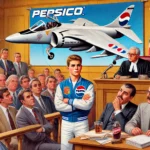The protests of Spanish farmers against the EU-Mercosur agreement reveal a deeper issue: the strategic importance of agriculture for the sovereignty of EU countries. In the face of global food crises, changing climate conditions, and political instability in food-exporting regions, reliance on external suppliers poses a significant threat to Europe’s security.
Is the EU aiming for food dependency?
There is growing concern that the EU’s trade policies are weakening local food producers, which could lead to long-term dependency on imports from third countries. Mercosur nations, while currently offering cheaper food, are regions prone to political instability, internal conflicts, and the effects of climate change. In the event of a major crisis in South America, Europe could face food shortages, forcing citizens to accept alternative protein sources, such as insects—already proposed in some circles as a "solution for the future."
Agriculture as a tool of sovereignty
Food production is not just an economic issue but also a matter of sovereignty. Countries that control their own food resources are better equipped to respond to crises and maintain political independence. Weakening European farmers by flooding the market with cheaper products from third countries is therefore a shortsighted policy that could have catastrophic consequences in the future.
Are Germany’s interests driving the EU?
Critics of EU policy argue that trade agreements like the one with Mercosur primarily serve the interests of the largest economies, such as Germany. German companies, especially in the automotive and pharmaceutical sectors, stand to gain new markets in South America. However, these benefits come at the expense of European agriculture, which becomes a victim of unfair competition. For smaller member states, such as Poland, this means their interests are sidelined in favor of German economic dominance.
Europe without agriculture, industry, and specialists?
Current economic trends in Europe point to a worrying direction:
Industry: Manufacturing is increasingly outsourced to Asia, where labor costs are lower.
Specialists: European countries are competing to attract skilled workers from Africa instead of investing in local talent development.
Agriculture: Food imports from South America are prioritized while local farmers are being pushed out of the market.
As a result, Europe risks losing its position as a leader in innovation, production, and food security. If these processes are not halted, Europeans may find themselves dependent on importing most basic goods, becoming passive consumers of global markets.
Conclusions: Time to Change Course
The protests of Spanish farmers are a wake-up call for all of Europe. If the EU wants to maintain its independence and sovereignty, it must revise its trade policies and actively support local producers. Agriculture cannot be treated solely as an economic sector—it is the foundation of the continent’s security and stability.
Trade policy should:
1. Protect local farmers by introducing equal standards for imported products.
2. Support local production by investing in modern technologies and sustainable agricultural practices.
3. Ensure food security by reducing dependence on imports from politically and climatically unstable regions.
Europe must choose: to be a sovereign producer or a dependent consumer. The decisions made today will shape the future of the entire continent.

0 Comments